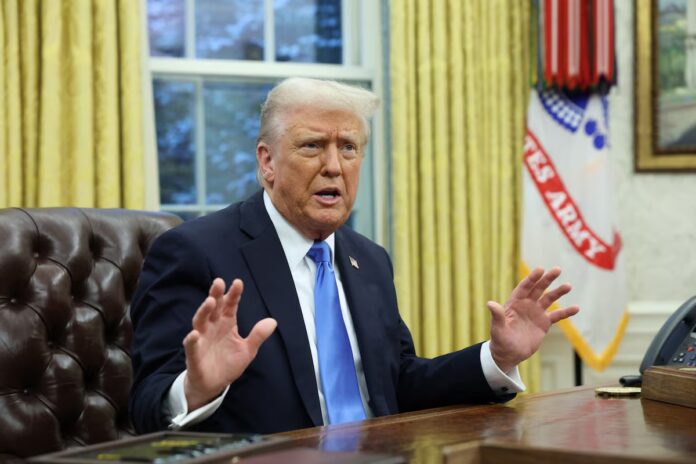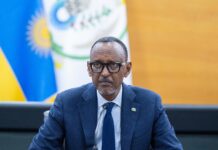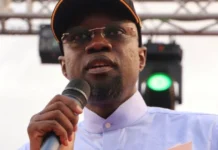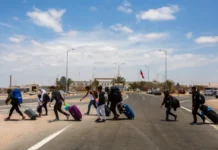
U.S. President Donald Trump on Wednesday confirmed he has authorized the Central Intelligence Agency (CIA) to carry out covert operations in Venezuela, a move that marks a dramatic escalation in U.S. efforts to oust President Nicolás Maduro.
The New York Times, citing officials familiar with the matter, reported that the classified directive gives the CIA authority to conduct lethal operations in Venezuela and across parts of the Caribbean.
The plan reportedly forms part of a broader Trump administration strategy aimed at removing Maduro from power, which includes a $50 million reward for information leading to his arrest on drug trafficking charges.
Speaking to reporters at the White House, Trump said he authorized the CIA operations for two main reasons: migration and drug trafficking.
“I authorized for two reasons really,” Trump said. “Number one, they have emptied their prisons into the United States of America. They came in because we had an open border. And the other thing is drugs.”
Trump provided no evidence to back his claim that Venezuela has released prisoners into the U.S. He also said Washington had made “great progress” in intercepting narcotics at sea and would now focus on overland trafficking routes.
While the White House declined to elaborate on what specific actions Trump had authorized, intelligence experts noted that CIA operations in such contexts could range from surveillance and intelligence gathering to direct paramilitary involvement.
The agency has a long and controversial history of covert activity in Latin America, including efforts during the Cold War and in anti-narcotics campaigns in Colombia and Mexico.
Venezuela’s government swiftly condemned Trump’s remarks as a violation of international law, accusing Washington of attempting to justify a regime-change operation to seize the country’s vast oil reserves.
“Our Permanent Mission to the UN will raise this complaint with the Security Council and the Secretary-General tomorrow, demanding accountability from the United States government,” Venezuelan Foreign Minister Yván Gil said in a statement.
Maduro’s administration has faced sustained U.S. sanctions and international isolation since 2019, when Washington and several Western nations recognized opposition leader Juan Guaidó as Venezuela’s legitimate leader.
Asked by reporters whether the CIA has been authorized to target Maduro directly, Trump declined to comment, saying only, “I think Venezuela is feeling heat.”
The president also accused Venezuela of being a hub for fentanyl trafficking,,a claim contradicted by U.S. data showing Mexico as the primary source of the deadly synthetic opioid.
Trump has ordered a significant U.S. military buildup in the southern Caribbean, with U.S. forces reportedly striking several vessels alleged to be linked to drug cartels, though Washington has yet to provide evidence for those claims.
The Pentagon recently informed Congress that Trump has declared the United States engaged in a “non-international armed conflict” with drug cartels.
The administration’s opaque approach has drawn criticism from members of Congress. Senator Jeanne Shaheen, the top Democrat on the Senate Foreign Relations Committee, warned that Trump’s actions risk entangling the U.S. in another foreign conflict.
“The American people deserve to know if the Administration is leading the U.S. into another conflict, putting service members at risk or pursuing a regime-change operation,” Shaheen said.
As the CIA’s operations begin under Trump’s new directive, analysts warn that U.S. involvement in Venezuela could further destabilize the region and heighten tensions with allies wary of unilateral American interventions.
Source: Reuters
Written By Rodney Mbua


















